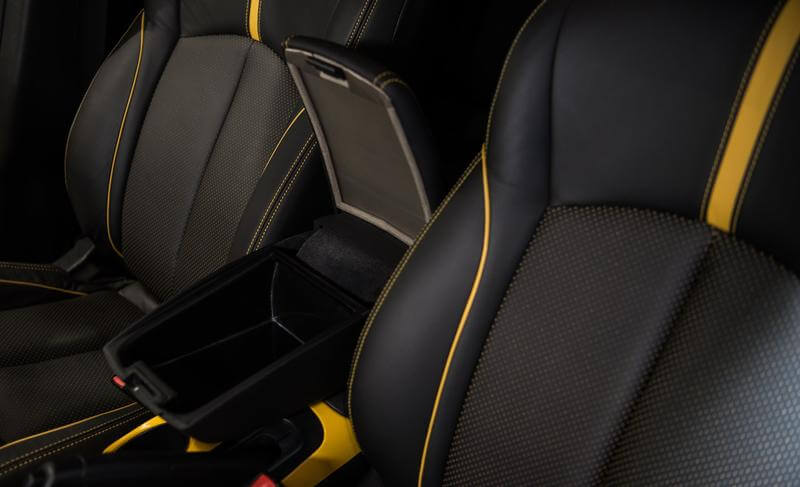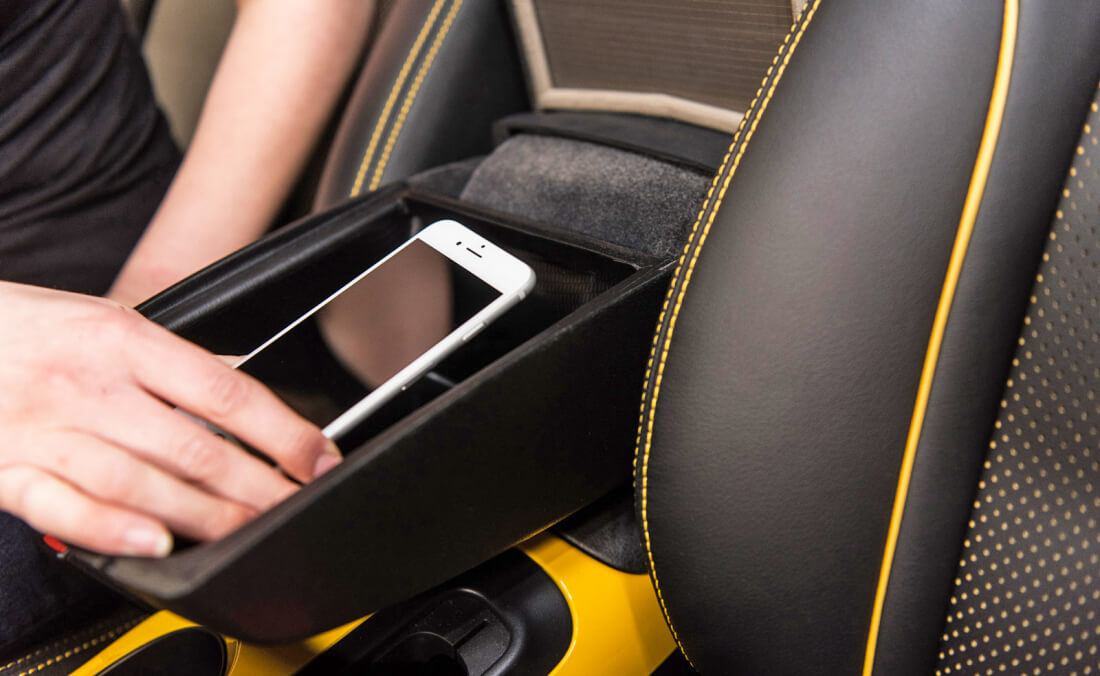In recent times, companies have been introducing devices and apps designed to stop drivers getting distracted by their smartphones. But vehicle manufacturer Nissan is turning to an old-school solution for a modern problem.
The company's prototype Nissan Signal Shield is a compartment built into the armrest of its Juke crossover vehicle. To stop incoming and outgoing cellular, Bluetooth, and Wi-Fi connections, the box uses the same principles as a Faraday cage, which features a conductive material, such as wire mesh, to shield contents from electromagnetic fields. It was invented by Michael Faraday way back in 1836.
Once the compartment lid is closed, distractions such as texts, calls, message notifications, and social media alerts won't get through. While some may question why a driver doesn't just turn off their phone before getting into a car, there are some advantages to using the box. Not only is it quicker and easier than powering a phone on and off, the compartment contains wired connections, meaning a handset can be linked to the car's infotainment system via USB or auxiliary ports so drivers can listen to music stored on their device, even when it's locked away.
Re-establishing a connection with the mobile network or the car's Bluetooth system is simply a matter of opening the lid. You don't have to take the phone out of the box or even touch it.

"Nissan produces some of the safest cars on the road today, but we are always looking at new ways to improve the wellbeing of our customers," said Alex Smith, managing director of Nissan Motor GB.
"Mobile phone use at the wheel is a growing concern across the automotive industry, and indeed society, particularly with the high number of 'pushed' communications, such as texts, social media notifications and app alerts that tempt drivers to reach for their devices."
"The Nissan Signal Shield concept presents one possible solution for giving drivers the choice to remove all smartphone distractions while driving. This is about delivering more control at the wheel, not less. Some drivers are immune to the activity of their smartphone, but for those who struggle to ignore the beeps and pings, this concept provides a simple solution in this very 'connected' world we live in."
Last year, a UK research team found that having a hands-free conversation is just as distracting for drivers as holding a phone in their hands.
Apps such as SMS Auto Reply, Android Auto, and Samsung's recent In-Traffic Reply send automated responses when users are driving. But Nissan's solution could be even more effective.
